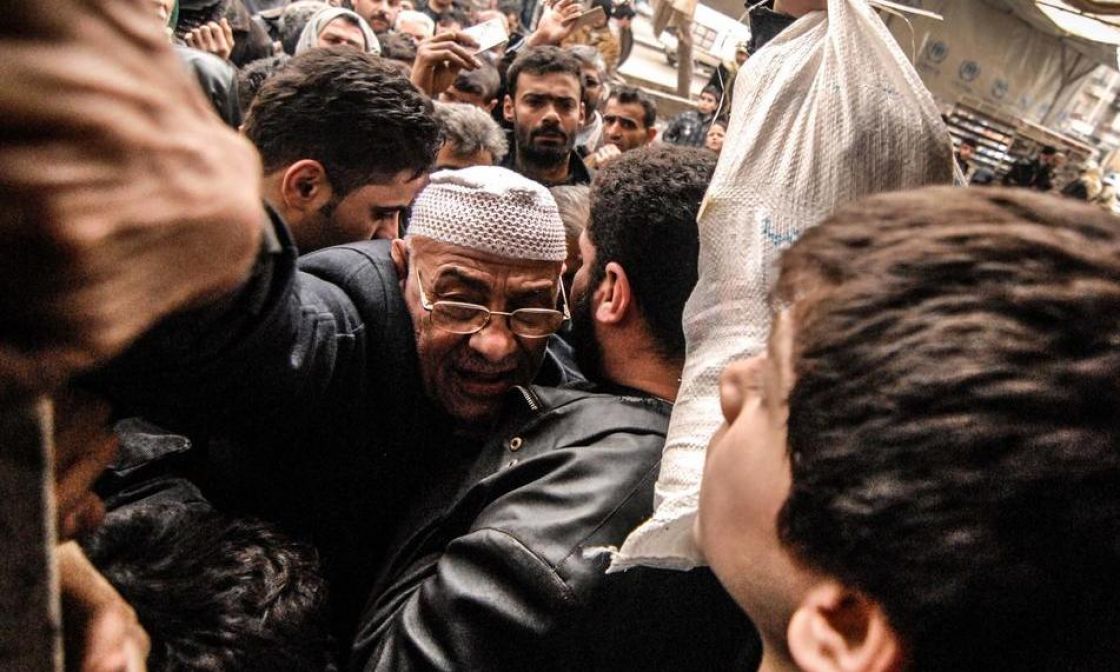- Editorials
- Posted
Against the Current
The media is being flooded with an unprecedented campaign, rising to the level of organized media terrorism. This campaign is ostensibly attacking the [intra-Syrian] National Dialogue Conference, but in depth it is a campaign against the political solution, and against Resolution 2254, and against the Russian role, regardless of the poor interpretations and explanations made by the staff of war involved in this campaign, for the purpose of raising suspicions, distortion, and falsification, against this entitlement.
The new common denominator in this blind media alert is the hypocritical expression of heartache for the claimed loss of the resolution 2254 and the Geneva negotiations. However, for the first time there is a consensus between them to adhere to this resolution, to avoid non-compliance, and to call for direct negotiations. Hence, we can say that Sochi Conference has achieved one of its goals, even before being held. That achievement is the recognition, by all parties, of the unavoidable necessity; that is, the willingness to return to the negotiating table, or at least putting the reluctants in a new impasse.
This hysteria reflects, in depth, a state of anxiety and panic of the approaching political solution, and the approaching demise of the remaining forces of obstruction. This is indicated from observation that this attack was based on the distortion and pre-judgment of the Sochi function, even before its final agenda being clarified, and before the parties being invited. This state of affairs is also indicated in terms of the fact that the forces that came to the fore in this campaign of questioning, distortion, and rejection, are actually those forces that have been marginalized in the context of the ongoing process of sorting and selection within the Syrian opposition forces.
The concrete experience with the Russian sponsor confirms that during the years of the crisis, he was clear, frank, honest, and impartial in dealing with all Syrians, both in the regime and the opposition, and even with the relevant international and regional powers. Exactly for this reason, he has succeeded in making all the progress that has been achieved in the political process; beginning from the Geneva communiqué, through Resolution 2254, the war on terror, the Astana track, the de-escalation zones, the process of forming one delegation of the opposition, and the insistence on the participation of all the relevant forces in the political process. Through his patience and impartiality, the Russian ally has had the ability to become the locomotive that pulls the entire political process, and gains a regional and international consensus on it, despite all complications and entanglements of the Syrian crisis. He is also capable of bringing the crisis to its last stop; that is, the implementation of the Resolution 2254, which secures the preservation of Syria's unity, reinforces its sovereignty over its entire territory, and provides the possibility that the Syrians themselves self-determine the fate of their country, leading to radical and comprehensive democratic national change, as a necessary entitlement. Therefore, one of the most important criteria in the practical position toward the consensual political solution is the position toward the Russian role. Every skepticism and attack on this role is an attack on the political solution itself, and every objection for the political solution is swimming against the current of the new trend in the system of international relations, which makes its way, though with difficulty, and through fierce battles on many fronts, advancing firmly and irreversibly.
Kassioun Editorial, Issue No 843, Dec. 30, 2017


